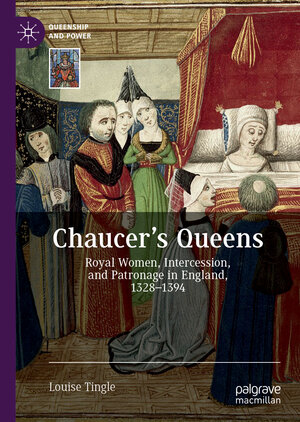
“The strengths of this study lie in its comparative vision and its well-researched contextual materials. The well-connected themes are also mutually informing. Among the already published seventy or so monographs of Palgrave Macmillan’s Queenship and Power Series, this book is a valuable addition to the evolving and increasingly globalized scholarship of queenship, which is complementing and revising the master narrative of the historiography of kingship.” (Chi-fang Sophia Li, Renaissance Quarterly, Vol. 76 (3), 2023)
“Tingle’s book is an important contribution to the study of medieval queenship. It adds new categories of analysis by locating the queen’s intercession and patronage within a transactional and economic space, giving broader understanding of the queen’s role at court and her agency, power, and authority.” (Lisa Benz, Royal Studies Journal, Vol. 9 (1), 2022)
This book investigates the agency and influence of medieval queens in late fourteenth-century England, focusing on the patronage and intercessory activities of the queens Philippa of Hainault and Anne of Bohemia, as well as the princess Joan of Kent. It examines the ways in which royal women were able to participate in traditional queenly customs such as intercession, and whether it was motherhood that gave power to a queen. This study focuses particularly on types of patronage, and also considers the importance of coronation, especially for Joan of Kent, who was neither a queen consort nor a dowager, yet still fulfilled some queenly duties. Crucially, the author highlights the transactional nature of the queen’s role at court, as she accumulated wealth from land, rights and traditions, which in turn funded patronage activities.




